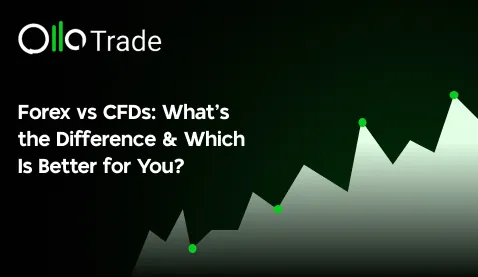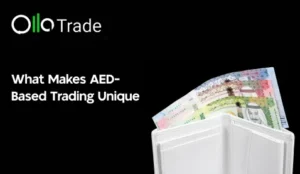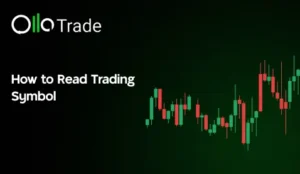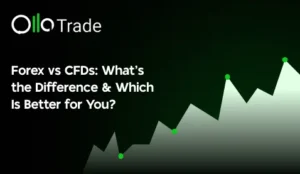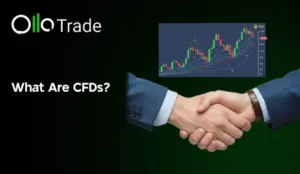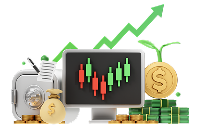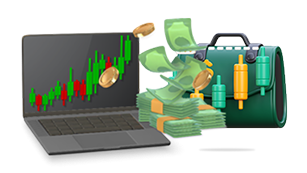Forex and CFDs are two of the most talked-about markets in the trading world, yet they often get mixed up. Both offer fast-paced action, potential profits, and flexibility but the way they operate, the assets involved, and how traders approach them are quite different.
Choosing between forex and CFDs isn’t about which is “better” in general; it’s about what best suits your trading objectives, risk tolerance, and preferred style. In this article, we’ll walk through the real differences, clear up the confusion, and help you figure out which one makes more sense for you.
Breaking Down the Basics of Forex vs CFDs
When you hear “forex vs CFDs,” it might sound like two sides of the same coin and in some ways, they are. They both let you trade without owning the actual asset, but they play by slightly different rules.
- Forex, short for foreign exchange, is all about trading currency pairs like USD/EUR or GBP/JPY in a global market that runs 24 hours a day. It’s fast-moving, liquid, and perfect for individuals who prefer to have their finger on the pulse.
- CFDs, or Contracts for Difference, are more like flexible trading contracts. They let you speculate on the price movement of not just currencies, but also commodities, indices, stocks, and more without buying the asset itself.
Think of forex as a specialized lane on a highway, and CFDs as the full freeway with multiple routes. Both let you profit from price ups and downs, thanks to leverage, but it’s the type of asset and trading style you prefer that really sets them apart.
CFD vs Forex Trading – What Sets Them Apart?
The trading world is full of choices, and “CFD vs forex trading” is one of those classic debates. It all comes down to your personal style, goals, and appetite for risk. To help you cut through the noise, here’s a straightforward comparison:
| Feature | CFD Trading | Forex Trading |
| Market Access | Access to a wide range of stocks, commodities and even crypto. | Focused solely on currency pairs. |
| Leverage | Often high but varies depending on the asset and region. | Typically, high leverage, especially on major pairs. |
| Trading Hours | Depends on the asset. Not for all markets run 24/5. | 24 hours a day and 5 days a week. |
| Costs/Spreads | Varies per asset and could include commissions and wider spreads. | Usually, tighter spreads and fewer hidden costs on major pairs. |
| Ownership | No ownership | No ownership |
Let’s Break It Down a Bit
Market Access
If you’re someone who likes keeping your options open, think tech stocks on Monday, gold on Wednesday, oil on Friday. CFDs offer the flexibility you’re after. Forex, on the other hand, is all about currency pairs. It’s more focused, which can be a plus if you’re someone who prefers mastering one game at a time.
Leverage
Both CFD and forex trading offer leverage, which means you can control a large position with a smaller amount of money. However, keep in mind that leverage has two sides. Always use it wisely.
Trading Hours
Forex takes the win here with round-the-clock action, Monday to Friday. If you’ve got a 9-to-5 job and like trading at midnight, forex plays nice with that lifestyle. CFDs depend on the markets you’re trading in.
Costs and Spreads
Forex tends to offer tighter spreads, especially on major pairs, which can help you cut costs. CFD trading can have wider spreads and sometimes even commissions, depending on what you’re trading and with which broker.
Ownership of Assets
Neither gives you the actual asset. Whether you trade CFDs or FX, you are not purchasing anything; you are simply betting whether prices will rise or fall.
No real ownership = no dividends, but also no paperwork.
CFD Comparison: When It Makes More Sense than Forex
If you’re the kind of trader who gets bored sticking to one flavor. CFDs might just be your jam. Unlike forex, which focuses primarily on currency pairs, CFDs provide access to a diverse range of markets, including:
Let’s say you want to trade tech stocks today, oil tomorrow, and gold next week, CFDs let you do that without owning any of those assets. Olla Trade Ltd makes it fast, flexible, and fits perfectly if you’re chasing variety or testing different market vibes.
Forex Trading Differences That Might Win You Over
When it comes to trading, forex has a few standout perks that just might tip the scale in its favor.
- First off, liquidity is off the charts. We’re talking about the most actively traded market in the world. That means faster order execution and less chance of slippage, even when the market’s buzzing.
- Then there are the tight spreads, which basically means you keep more of your profits instead of watching them get eaten up by fees.
- And let’s not forget the 24/5 access. The forex market doesn’t care if it’s day or night in your time zone. You can trade around your schedule, not someone else’s.
Final Thoughts: Which One’s Better for You?
The choice between forex and CFDs is determined by your trading style. If you’re new to the game or prefer sticking to currencies, forex might feel like a more familiar starting point. But if you’re comfortable with a bit more complexity and want access to a wide range of assets then CFDs offer a flexible edge. It also depends on how much risk you can tolerate.
Whether you want CFDs or Forex, Join Olla Trade Ltd and test the waters with a demo before diving in.

